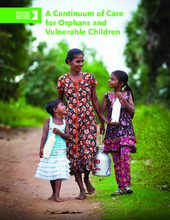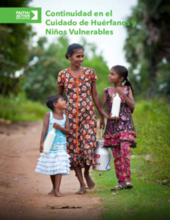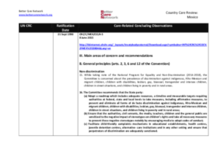Displaying 441 - 450 of 657
This article is an attempt to analyse and describe the process of change in child substitute care that has taken place since the re-independence of Estonia in 1991.
This webinar looks at the range of alternative care for children who have been separated from parental care and emphasizes family care.
This series of podcasts from Faith to Action Initiative features the audio from past Faith to Action webinars, including a webinar on The Continuum of Care.
A Continuum of Care provides an overview of a range of alternative care options for children who have been separated from parental care.
Esta guía es la tercera publicación en una serie producida por the Faith to Action Initiative (Iniciativa de Fe en Acción) para proporcionar a las iglesias, a las organizaciones basadas en la fe, e individuos de fe con información para ayudar a guiar la “mejor práctica”. La guía proporciona una visión general de una gama de opciones de cuidado alternativo para los niños que han sido separados del cuidado parental.
This study investigates the correlation over time between international adoption and institutional care.
This country care review includes the care related Concluding Observations adopted by the Committee on the Rights of the Child.
This country care review includes the care related Concluding Observations adopted by the Committee on the Rights of Persons with Disabilities and the Committee on the Rights of the Child.
This qualitative study explored perceptions of youth with foster care experiences in the US, regarding successful adoption.
Le Service Social International lance son Manifeste pour une éthique de l’adoption internationale.




